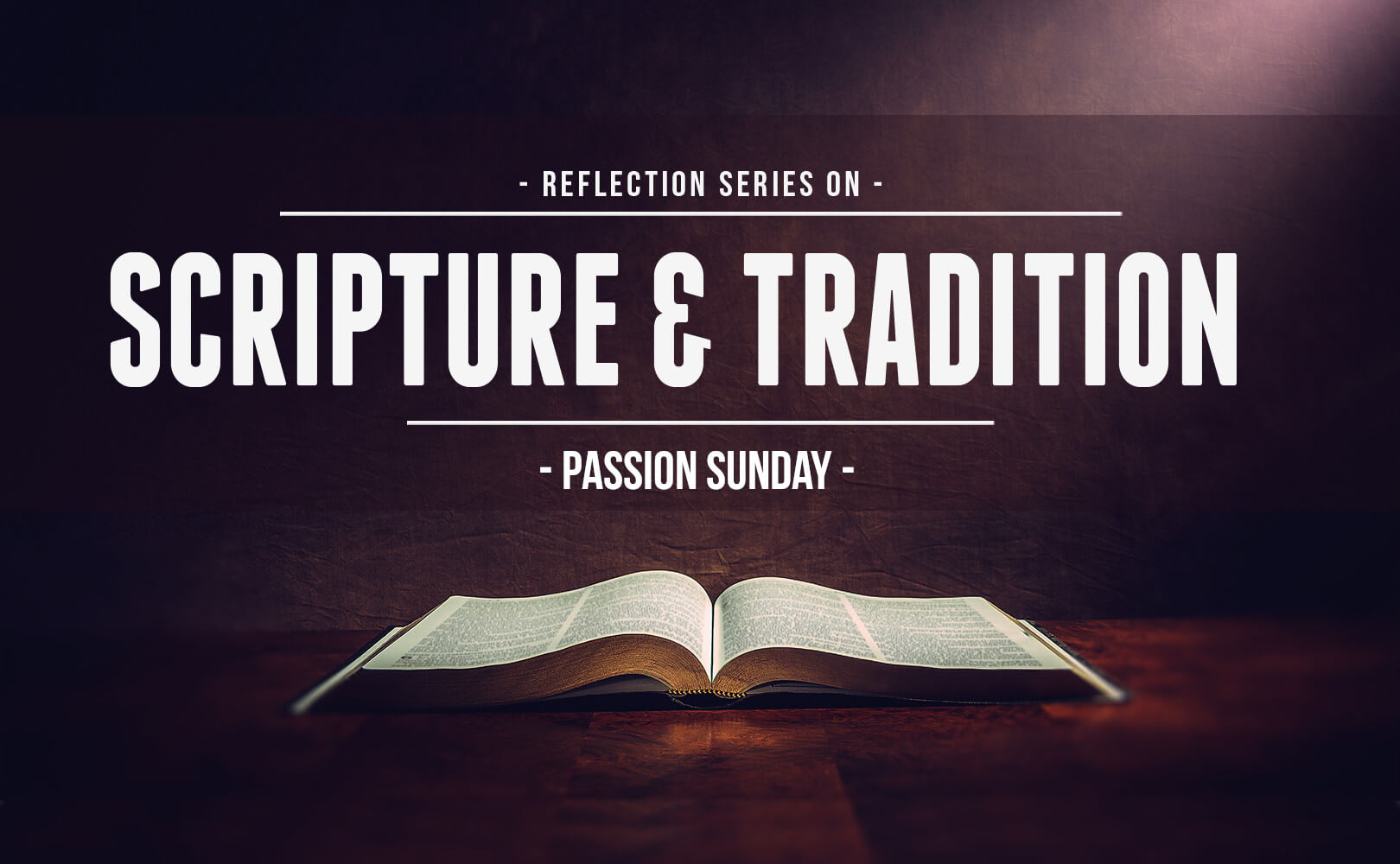Epistle: Hebrews 9:11-15
Gospel: John 8:46-59
Look down in mercy, we beseech Thee, O Lord, upon Thy family; by Thy governance may we be outwardly protected in body; by Thy favor may we be inwardly strengthened in heart and mind.
– From the Collect for Passion Sunday
This Sunday is Passion Sunday, which begins the two-week period of Passiontide, leading to the great celebration of Easter. Sadly, Passiontide was another liturgical observation that was lost in the post-Vatican II attempts to “simplify” the liturgical calendar. Yet Passiontide heightens our observance of Lent as well as our anticipation for Easter. One example of how this is done is the covering of all crucifixes, statues, and images during Passiontide, depriving the faithful of these sensory images in order to make them more pronounced at Easter.
Sunday’s readings prepare us for the awesome mystery that will soon unfold: the Almighty God will be sacrificed for our salvation. The Epistle for Sunday is from the Letter to the Hebrews, which presents Christ as both High Priest and Victim. It is the blood of Christ, shed on Good Friday, which both fulfills and makes unnecessary all the bloody animal sacrifices of the Old Testament. As the Letter to the Hebrews states, “if the blood of goats and of oxen, and the ashes of an heifer, being sprinkled, sanctify such as are defiled, to the cleansing of the flesh: How much more shall the blood of Christ, who by the Holy Ghost offered himself unspotted unto God, cleanse our conscience from dead works, to serve the living God?” The precious blood of Christ is of infinite value, and one drop is enough to save the world. Yet the Lord, in his gratuitous love, willingly gave up his whole life for our salvation.
In Sunday’s Gospel we are confronted by the reality of Who it is that is sacrificed for us. When Jesus is confronted by the Jews, they challenge Christ’s contention that those who keep his word shall not face death. After all, they argue, even Abraham and the prophets have died, so how can Jesus say he can make it so his followers will not face death?
Christ, of course, is speaking not of physical but spiritual life and death, yet instead of explaining this to the disbelieving Jews, he uses this encounter to reveal to the world his true nature. When the Jews challenge Christ’s claim that Abraham would rejoice to see his day, Jesus expresses the full reality of the Incarnation, “Amen, amen, I say to you, before Abraham was made, I AM.” These words point back to God’s revelation to Moses at the burning bush: “If they shall say to me: What is his name? What shall I say to them? God said to Moses: I AM WHO AM” (Exodus 3:13-14).
Jesus is revealing that the man before them is the Lord of Hosts, the God of Heaven and Earth, the Eternal I AM. “Our Redeemer graciously turns their gaze away from his body and draws it to contemplation of his divinity” (St. Gregory the Great, Forty Gospel Homilies, 16). The Jews understand immediately what Jesus means by these words, for John then tells us, “They took up stones therefore to cast at him.” Jesus is claiming to be God, which is blasphemy deserving of death, if not true.
These readings, proclaimed just two weeks before the great events of the Paschal Triduum, remind us of the immense gravity of what we commemorate. Christ—our God—willingly gives himself up for our salvation. The Lord of Life becomes death; the Almighty humbles himself on the Cross. All this is done out of great love for mankind.
“[Christ] is the mediator of the new testament: that by means of his death for the redemption of those transgressions which were under the former testament, they that are called may receive the promise of eternal inheritance” (Hebrews 9:15).


